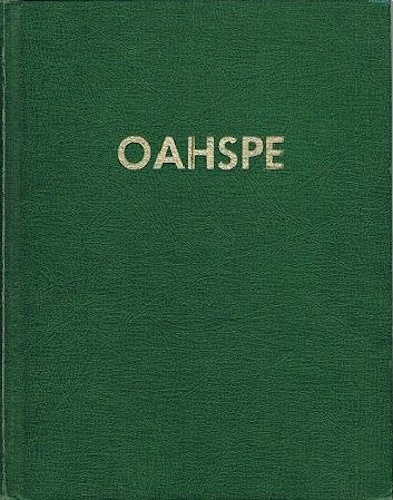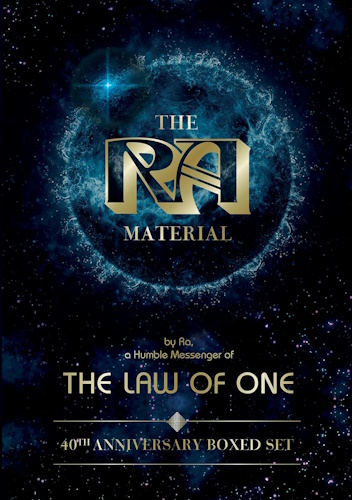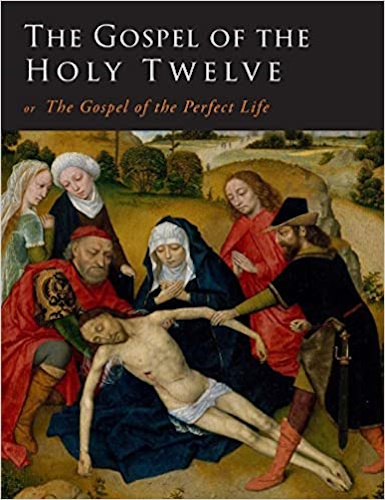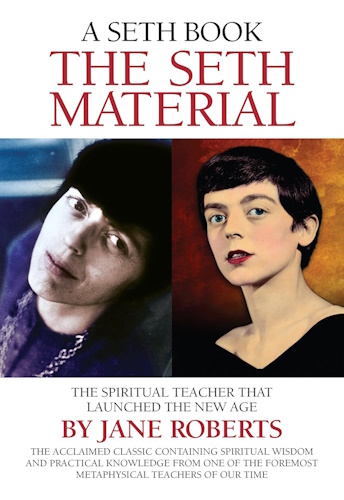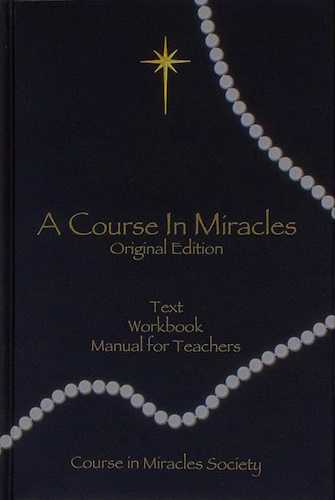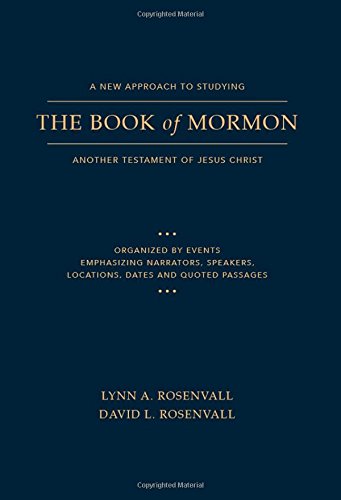
![]()
![]()
Book of Lika, Son of Jehovih
Chapter XVIII
1. AFTER the judgment of Anuhasaj and Chesota at Theovrahkistan, Ahura asked Lika for assistance to remove the remainder of Vara-pishanaha to Hao-yusta, which Lika granted, allotting ten millions of his etherean hosts to accomplish it. With these Ahura and Anuhasaj and Chesota accomplished the removal.
2. In not many days after this, Sudga was delivered from the hells of Auprag, of which event Ahura had been previously informed, as to the time thereof, and he accordingly went to Auprag, to be in readiness to receive Sudga, and help restore him if required.
3. Sudga, on his delivery from the knot, where there had been thirty millions bound, was bereft of reason, but not gentle like Anuhasaj, but fierce, battling right and left, a very maddened maniac that neither saw nor heard, but raved and cursed with all his strength, choked up with madness. For all the curses of his broken-down kingdom recoiled upon himself; the projective curses of his thousands of millions of slaves were piercing his soul from every quarter.
4. But they held him fast and carried him into the ship, which sailed for Hao-yusta, whither he was landed in the same condition. Ahura was with him, and Ahura caused a circle of deliverance to assemble and labor in the restoration. And it required thirty days and nights to bring him round, so he could even see and hear; but as for his judgment it was yet a hundred days more before it manifested.
5. So Ahura could not wait longer with him, but returned to the hells where Te-in was bound, the Ak-a-loo-ganuz, for Te-in was to be delivered. But herein was Ahura also disappointed, for Te-in was neither frightened nor wild nor mad; but limpid, helpless as water and without knowledge, more than a vessel of water. His energies had all been exhausted, and in a dead swoon he lay in the heart of the knot. Him they also carried to Hao-yusta, and Ahura provided for his restoration.
p. 500a
6. But yet, ere Te-in awoke from his stupor, Ahura departed for Osiris, who was bound in the hells of Prayogotha. Osiris had been in hell now for more than a hundred years, and in a knot for fifty years.
7. When the false Osiris was delivered, he was deranged, but preaching Jehovih, calling everybody Jehovih, and everything Jehovih. Him they also carried to Hao-yusta and provided restoration for him. And Ahura went thither also to assist with all his wisdom and strength.
8. Thus were delivered all the self-Gods who had rebelled against Jehovih and established the great confederacy, of which not one vestige was now left.
9. But of all the angels delivered out of the hells and knots not one in ten was of sound judgment, whilst more than half of them were only drujas at best.
10. Thus was founded the new kingdom of Hao-yusta, but yet in charge of the ethereans, who were to commit it to Anuhasaj and his one-time confederates, for their deliverance.
11. It came to pass in course of time that Sudga and Te-in and Osiris were restored to judgment, and in this matter Anuhasaj and Ahura and Chesota were constant workers. And when they were all restored, they in turn fell to, to restore others, to which labor they were committed till the close of dawn.
12. Osiris and Te-in and Sudga all desired to go before Lika, to be adjudged and sentenced; and they all sentenced themselves, which was granted unto them. On this occasion Osiris said:
13. Thy lessons are near at hand, O Jehovih. But who will learn them? Mortals go insane, because they have not learned to throw their cares upon Thee. To throw government upon Thee, O Jehovih, is not this wisdom? To cast riches and kingdoms into Thy lap; to own nothing; to have nothing; is not this the sum of the highest happiness?
14. Whoso doeth this will battle against no man for anything in heaven or earth. But he who doeth otherwise will soon or late descend into hell. For what is hell but the opposite of bliss? What is battling against others, but sowing the seed of anarchy in one's own soul? To battle against others is to gain the lower, by sacrificing the higher, of which latter Thou, O Jehovih, art the summit.
15. To go against Thee, O Father, is to go against one's fellows; to go against one's fellows is to go against Thee. And
p. 501a
who can go against Thee but will soon or late evolve his own fall?
16. Thou hast given to mortals, kings, queens, and shown them that soon or late their kingdoms will fall to pieces. And yet Lords and Gods, seeing these things, will not believe. Every one, in his own conceit, imagineth his particular kingdom will be governed more wisely than all his predecessors. And yet his also falleth.
17. Now will I turn to find Thee, O Jehovih, and the search shall be everlasting. Kingdoms are nothing to me; all possession, save wisdom and love, are but vanity and vexation. I know Thou art above all else, and yet Thou art that that hath given Thyself all away, so that none can look upon Thy face. Verily hast Thou hid Thyself away; to be like unto Thee is to hide away the self of one-self; and that that will remain will be Thy mouth-piece and Thy hand.
18. Then spake Sudga unto Jehovih, saying: Why was I puffed up, seeing that I created not even mine own self. Neither had I anything in earth or heaven to use or to work with, but the substance was made already. Yea, I leapt into Thy garden which Thou hadst planted.
19. I raised up my voice against Thee; because Thou wert too Holy for my gross senses to behold, I condemned Thee. I wanted Thee gross that I could look upon Thee; that I could walk around Thee, and behold Thy stature. I saw that all men were like unto me in this.
20. Therefore I made a figure-head of myself; I said unto Thy children: Behold me! And at first they were pleased, because they imagined they had found a Creator they could measure. But Thine eye was upon me, Thine hand pointed the way and the manner of my iniquity. And they searched me out and found I was but a man, like unto themselves. Wherefore they condemned me.
21. The fool acknowledgeth no person save he can grapple therewith, and find the arms, and the length thereof, and the feet and their standing place. How vain I was in this, O Jehovih!
22. He that professed Thy Person I denounced as a fool; because I saw not Thy completeness Thou sufferedst me to pursue my vanity. Because I had risen above acknowledging Thy Person I was forced to make man the All Highest; and this drove me to make myself the all highest man. But Thou camest not against me to beat me from my iniquity, but gavest me full play to do my utmost.
23. On all sides hast Thou encompassed
p. 502a
Thy creation with liberty. Even Thine enemy Thou hast not restrained. He standeth in public, saying: Jehovih, I deny Thee. If Thou art mightier than I, strike me down. Behold, I deny Thee and Thy Person! Thou Void Nothingness! Thou fool Creator, with Thy half-created world. Thou who hast created sin! And created misery! Thou Father of evil! O Thou dumb Nothing.
24. Yea, even to him hast Thou given free speech; and he buildeth up his own soul in his own way. And for a season he is the delight of the druk and the druj; yea, they fasten upon him, and he gaineth a multitude of evil ones, divided one against another, but the seed of his curses taketh root in them, and he becometh encompassed with foulness and bondage.
25. To find harmony in Thee, O Jehovih; to measure the Goodness of Thee; to rejoice in one's joys; to treasure Thy best gifts; to laud Thy love; to love Thee because Thou hast given me power to love, and things to love; to rejoice in Thy fruits and flowers and all perfected things; to harp forever upon Thy glories and the magnitude of Thy creation; to sing praises to Thee for harmony wherever found; to love to comprehend all good things; to find the good that is in all men and women; to rejoice in delights; to teach others to rejoice, and to search after all perfected beauties and goodness and righteousness and love; these shall be my service unto Thee, my everlasting Father.
26. To seek not to find imperfections; to seek not to find inharmonies; to seek not to find evil; to seek not to find ugliness; to seek not to find evil in others, nor their darkness nor shortcomings; to seek not to prove imperfections upon Thee, O Jehovih; to find no fault with Thee; to complain not against Thee; to complain not for trials nor for hardships, nor for the evil others inflict me with; to quibble not, because I can not comprehend Thy vastness; to quibble not for myself; to speak not evilly against anything Thou hast created. O make Thou me strong and wise forever.
27. Te-in spake to Jehovih, saying: Wherein is the limit of experience, O Jehovih! And how short have I not been before Thee, My Father! Behold, I had learned all philosophies; I had been taught for a long season in the right way, but I rebelled against Thee, my Creator.
28. I had been taught to horde not up anything; to own nothing; to desire nothing but wisdom and love. And Thy teachers, O Jehovih, showed me
p. 503a
the evidence of thousands of great rulers, and every one of them had come to evil and destruction. Why then, O Father, was I not wise in the evidence before me? But I rose up against all this testimony, and I fashioned a mighty kingdom. Yea, Thou sufferedst me to try in mine own way to the full.
29. I went not by peace but by war; I raised me up standing armies and great warriors without limit; by force I established myself, but only as a tree that groweth up and is cut down. But what was I in Thy great universe, O Jehovih. What was my experience but the repetition of others who had been before me.
30. Now will I be wise; most cautious in my wisdom, and slow to proceed. But how can I make my experience profitable unto others? Thou hast stood me afar off; whoso heareth me will say: Ah, had I tried it I had succeeded better. Thou prickest each one to go in and try, but they all fail. Yea, they reiterate their failure; but where is the profit of this experience unto others? How can I ever reach them, O Jehovih!
31. What profit have I more than a mortal that dwelleth on the earth? Have not the angels testified for thousands of years that the rich man was crippling his own soul, and that the king and queen were binding themselves with chains for the habitation of hell? But they will not heed; every one hopeth he at least will find a way to escape; to gain prestige over others; to be a leader; to have servants; to be idle; to live at ease; to have great possessions; to revel in luxuries. Are not these more powerful than experience; greater in the eyes of the ignorant than all the wisdom of earth and heaven.
32. Thou hast wisely shaped Thy creatures, O Father! Thou makest great servants of us in a way we know not of. Behold, I desired a mighty kingdom in heaven, and Thou gavest one into my hand. Yea, I flattered myself with my success; I laughed at the Gods who had been before my time. How things are changed now, O Jehovih!
33. Thou hast made me a servant of servants; yea, by mine own hand have I bound myself about. Have I not heard mortals say: O that I had a kingdom to rule over! O that I had great riches, how good I would be! And because Thou deniest them for their own good, they complain against Thee. Who shall answer for the vanity of men and angels! They have not patience with Thee, who created them alive and knowest what is best.
p. 504a
34. One saith: Yonder is a great king, why doeth he not a great good? Or, yonder is a rich man, why doeth he not a great good also. O that I were in their places.
35. How shall I show them, O Father, that to be a king is to go away from doing good; that to be a rich man is to deny goodness? Yea, by the very act of possession is he testimony in the opposite way. For he that is good giveth all; even as Thou gavest all and so made all things. And the greater the possession the greater the bondage. Who hath so small responsibility as he who hath nothing? This is the sum of wisdom, O Jehovih; and all men and angels soon or late will acknowledge it.
36. Better hast Thou made it for the servant than for the master; better for the poor than the rich; and these things will also come to their understanding in course of time. But how can I, O Father, make them to know wisdom without experience, to accept the testimony of others' tortures in hell?
37. Behold, Thou gavest me great learning when I was of the earth; and when in hada great advantages to attain to deep wisdom; but, after all, I was caught in a snare of my own setting. How much, then, O Father, must I expect of the multitude? Happy is he who hath nothing, and desireth only wisdom and love. To cultivate such a garden, what a harvest will ripen out unto him.
38. When the three had thus spoken before the throne and before the high Council, Ahura stood aside and spake also. He said:
-
Urantia Book, 44:0.11 - The Celestial Artisans
Never in your long ascendancy will you lose the power to recognize your associates of former existences. Always, as you ascend inward in the scale of life, will you retain the ability to recognize and fraternize with the fellow beings of your previous and lower levels of experience. Each new translation or resurrection will add one more group of spirit beings to your vision range without in the least depriving you of the ability to recognize your friends and fellows of former estates.
-
Princess Bride 1987 Wallace Shawn (Vizzini) and Mandy Patinkin (Inigo Montoya)
Vizzini: HE DIDN'T FALL? INCONCEIVABLE.
Inigo Montoya: You keep using that word. I do not think it means what you think it means. -
Urantia Book, 117:4.14 - The Finite God
And here is mystery: The more closely man approaches God through love, the greater the reality -- actuality -- of that man. The more man withdraws from God, the more nearly he approaches nonreality -- cessation of existence. When man consecrates his will to the doing of the Father's will, when man gives God all that he has, then does God make that man more than he is.
-
Urantia Book, 167:7.4 - The Talk About Angels
"And do you not remember that I said to you once before that, if you had your spiritual eyes anointed, you would then see the heavens opened and behold the angels of God ascending and descending? It is by the ministry of the angels that one world may be kept in touch with other worlds, for have I not repeatedly told you that I have other sheep not of this fold?"
-
Urantia Book, Foreword - 0:12.12 - The Trinities
But we know that there dwells within the human mind a fragment of God, and that there sojourns with the human soul the Spirit of Truth; and we further know that these spirit forces conspire to enable material man to grasp the reality of spiritual values and to comprehend the philosophy of universe meanings. But even more certainly we know that these spirits of the Divine Presence are able to assist man in the spiritual appropriation of all truth contributory to the enhancement of the ever-progressing reality of personal religious experience—God-consciousness.
-
Urantia Book, 1:4.3 - The Mystery Of God
When you are through down here, when your course has been run in temporary form on earth, when your trial trip in the flesh is finished, when the dust that composes the mortal tabernacle "returns to the earth whence it came"; then, it is revealed, the indwelling "Spirit shall return to God who gave it." There sojourns within each moral being of this planet a fragment of God, a part and parcel of divinity. It is not yet yours by right of possession, but it is designedly intended to be one with you if you survive the mortal existence.
-
Urantia Book, 1:4.1 - The Mystery Of God
And the greatest of all the unfathomable mysteries of God is the phenomenon of the divine indwelling of mortal minds. The manner in which the Universal Father sojourns with the creatures of time is the most profound of all universe mysteries; the divine presence in the mind of man is the mystery of mysteries.
-
Urantia Book, 1:4.6 - The Mystery Of God
To every spirit being and to every mortal creature in every sphere and on every world of the universe of universes, the Universal Father reveals all of his gracious and divine self that can be discerned or comprehended by such spirit beings and by such mortal creatures. God is no respecter of persons, either spiritual or material. The divine presence which any child of the universe enjoys at any given moment is limited only by the capacity of such a creature to receive and to discern the spirit actualities of the supermaterial world.
-
Urantia Book, 11:0.1 - The Eternal Isle Of Paradise
Paradise is the eternal center of the universe of universes and the abiding place of the Universal Father, the Eternal Son, the Infinite Spirit, and their divine co-ordinates and associates. This central Isle is the most gigantic organized body of cosmic reality in all the master universe. Paradise is a material sphere as well as a spiritual abode. All of the intelligent creation of the Universal Father is domiciled on material abodes; hence must the absolute controlling center also be material, literal. And again it should be reiterated that spirit things and spiritual beings are real.
-
Urantia Book, 50:6.4 - Planetary Culture
Culture presupposes quality of mind; culture cannot be enhanced unless mind is elevated. Superior intellect will seek a noble culture and find some way to attain such a goal. Inferior minds will spurn the highest culture even when presented to them ready-made.
-
Urantia Book, 54:1.6 - True And False Liberty
True liberty is the associate of genuine self-respect; false liberty is the consort of self-admiration. True liberty is the fruit of self-control; false liberty, the assumption of self-assertion. Self-control leads to altruistic service; self-admiration tends towards the exploitation of others for the selfish aggrandizement of such a mistaken individual as is willing to sacrifice righteous attainment for the sake of possessing unjust power over his fellow beings.
-
Urantia Book, 54:1.9 - True And False Liberty
How dare the self-willed creature encroach upon the rights of his fellows in the name of personal liberty when the Supreme Rulers of the universe stand back in merciful respect for these prerogatives of will and potentials of personality! No being, in the exercise of his supposed personal liberty, has a right to deprive any other being of those privileges of existence conferred by the Creators and duly respected by all their loyal associates, subordinates, and subjects.
-
Urantia Book, 54:1.8 - True And False Liberty
There is no error greater than that species of self-deception which leads intelligent beings to crave the exercise of power over other beings for the purpose of depriving these persons of their natural liberties. The golden rule of human fairness cries out against all such fraud, unfairness, selfishness, and unrighteousness.
